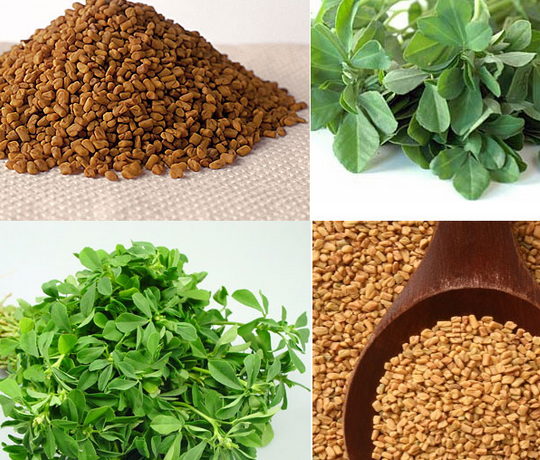Fenugreek is a plant. The seeds can be used to make medicine. Fenugreek can be used for many conditions.
Contents
Uses
- Digestive problems
- Loss of appetite
- Upset stomach
- Constipation
- Inflammation of the stomach (gastritis)
- “hardening of the arteries” (atherosclerosis)
- High blood levels of certain fats including cholesterol and triglycerides.
- Kidney ailments
- A Vitamin deficiency disease called beriberi
- Mouth ulcers
- Boils
- Bronchitis
- Infection of the tissues beneath the surface of the skin (cellulitis)
- Tuberculosis
- Chronic coughs
- Chapped lips
- Baldness
- Cancer
- Lowering blood sugar in people with diabetes.
- Hernia
- Erectile dysfunction (ED), and other male problems.
- Women who are breast-feeding sometimes use fenugreek to promote milk flow.
- Fenugreek is sometimes used as a poultice. That means it is wrapped in cloth, warmed and applied directly to the skin to treat local pain and swelling (inflammation), muscle pain, pain and swelling of lymph nodes (lymphadenitis), pain in the toes (gout), wounds, leg ulcers, and eczema.
- The taste and odor of fenugreek resembles maple syrup, and it has been used to mask the taste of medicines.
- In foods, fenugreek is included as an ingredient in spice blends. It is also used as a flavoring agent in imitation maple syrup, foods, beverages, and tobacco.
- In manufacturing, fenugreek extracts are used in soaps and cosmetics.
- Fenugreek leaves are eaten in India as a vegetable.
Cautions
- Fenugreek appears to slow absorption of sugars in the stomach and stimulate insulin. Both of these effects lower blood sugar in people with diabetes.
- Fenugreek is LIKELY SAFE for people when taken by mouth in amounts normally found in foods. It is POSSIBLY SAFE when taken in amounts used for medicinal purposes (amounts larger than normally found in food) for up to 6 months. Side effects include diarrhea, stomach upset, bloating, gas, and a “maple syrup” odor in urine. Fenugreek can cause nasal congestion, coughing, wheezing, facial swelling, and severe allergic reactions in hypersensitive people. Fenugreek might lower blood sugar.
- Pregnancy and breast-feeding: Fenugreek is LIKELY UNSAFE in pregnancy when used in amounts greater than those in food. It might cause early contractions. Taking fenugreek just before delivery may cause the newborn to have an unusual body odor, which could be confused with “maple syrup urine disease.” It does not appear to cause long-term effects. Although fenugreek is used to stimulate the production of breast milk, not enough is known about the safety of fenugreek during breast-feeding. It’s best not to use fenugreek is you are breast-feeding.
- Children: Fenugreek might be UNSAFE for children. Some reports have linked fenugreek tea to loss of consciousness in children. An unusual body odor resembling maple syrup may occur in children drinking fenugreek tea.
- Diabetes: Fenugreek can affect blood sugar levels in people with diabetes. Watch for signs of low blood sugar (hypoglycemia) and monitor your blood sugar carefully if you have diabetes and use fenugreek.
References
Source: WebMD, “Fenugreek”, www.webmd.com/vitamins-supplements/

